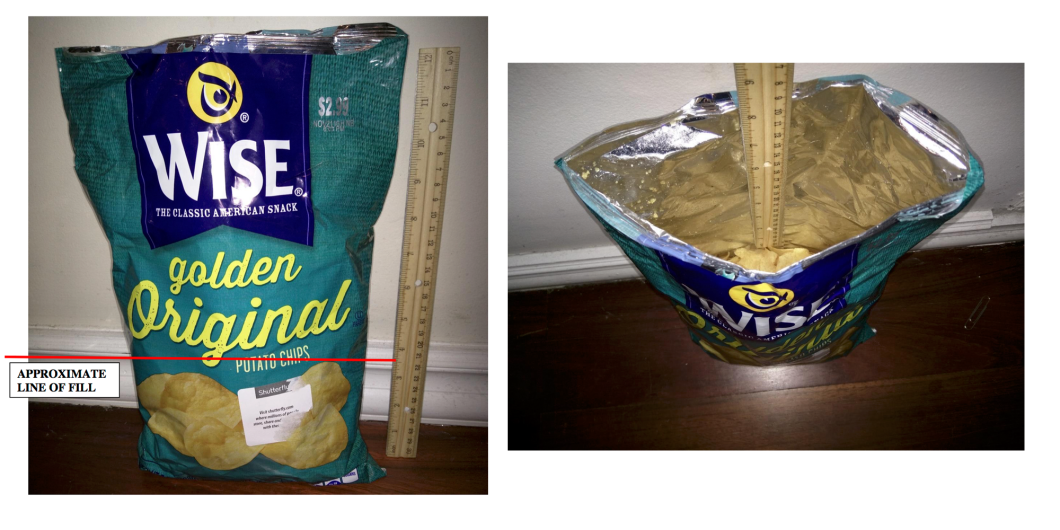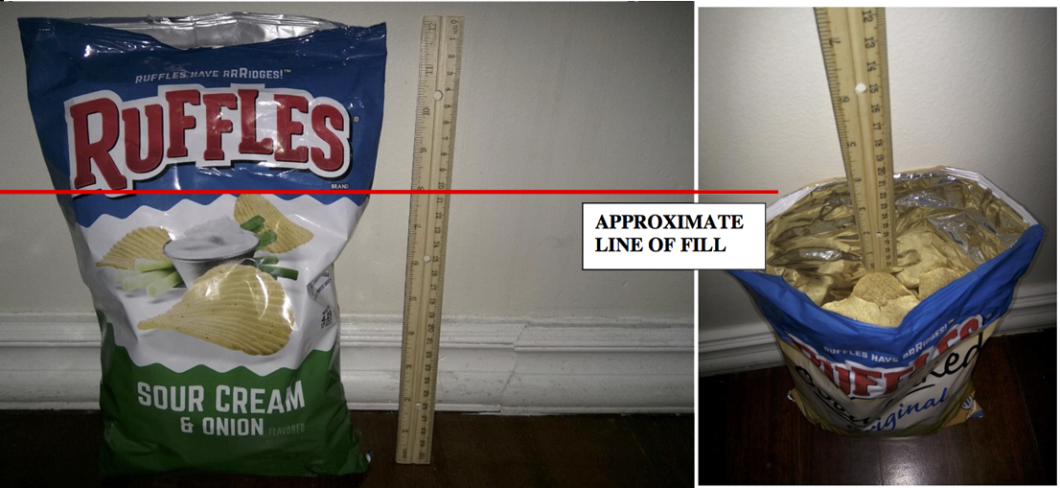When Does The Extra Space In Your Potato Chip Bag Go From Annoying To Deceptive?
If you have two bags of potato chips with the same size packaging, containing the same weight of potato-based snacks, does it matter if one of those bags also contains more empty space? It does to two customers who have accused Wise of misleading shoppers by selling bags of snacks with lots of air.
The lawsuit [PDF] alleges that a number of Wise products contain deceptively large packaging for the amount of food inside.
Their complaint contains a number of photos that the plaintiffs believe illustrate the problem.
For example, the lawsuit says this 7 oz. bag of Wise’s Golden Original Potato Chips is only filled up to about 1/3 of its height:

By point of comparison, the plaintiffs claim that several products from competitor Ruffles had notably less-empty bags:

The question is whether or not Wise is truly misleading people. So-called “slack-fill” is the difference between the size of the packaging and the food it contains. It’s perfectly legal — otherwise everything would be vacuum-packed, but there are federal regulations that bar the use of “nonfunctional slack-fill” in food packaging.
However, those regulations have a number of sufficiently vague conditions that food producers can use to justify slack-fill, such as needing that space to protect the contents, requirements of the machines used to fill the packaging, and “unavoidable product settling during shipping.”
In the settled (but not quite settled) class-action lawsuit over Starkist tuna, the plaintiffs had claimed that cans of tuna labeled “5 oz.” actually contained only about 3.2 ounces of actual fish (an allegation that Starkist denies).
The Wise plaintiffs are saying something slightly different. They don’t appear to be arguing that the weight listed on the bag is deceptive, just that the size of the bag gives off a false impression of how much you can expect to get.
“While some of Defendant’s slack-fill may serve the functional purpose of minimizing the breakage of chips, Defendant’s total slack-fill exceeds the amount necessary for this and some of the slack-fill is therefore nonfunctional,” argues the complaint.
One question that will almost certainly be addressed in Wise’s response to the lawsuit is the fact that these bags, regardless of the slack-fill, appear to contain accurate information about the actual amount — in terms of weight — of potato product the customer is buying. The plaintiffs contend that is a non-issue.
“The Products are misbranded regardless of any disclosures about contents settling and regardless of whether or not weight is labeled accurately,” reads the lawsuit.
However, in 2016 a federal court judge in New York dismissed a similar lawsuit — brought by the same law firm — alleging that Pfizer had misled Advil customers by selling overly large bottles of the ibuprofen pain reliever.
Pfizer pointed out that the packaging for every bottle of Advil states how many pills are contained therein. The plaintiffs had argued that they didn’t pay attention to this information and made their purchase based on the bottle’s size.
The judge was unconvinced, finding [PDF] that the plaintiffs had provided “no basis for disregarding the clearly stated pill-counts on the labels, nor do they dispute the fact that the tablet-count is clearly and prominently displayed on each of the labels…. It defies logic to accept that the reasonable consumer would not rely upon the stated pill count.”
Want more consumer news? Visit our parent organization, Consumer Reports, for the latest on scams, recalls, and other consumer issues.

